Since COVID-19 strong-armed its way to the forefront of the US media in March 2020, we’ve seen hundreds, even thousands of news stories, opinion pieces, and agency reports on related topics ranging from its impact on schools and employment to the CARES Act and other financial support. In the last several weeks, the development of a COVID-19 vaccine, its approval process, distribution priority groups, and the like have dominated headlines, and are weighing heavily on the minds of those in the LTC community – residents, employees, and leaders alike. We’ve outlined a breakdown of what’s happened to date, what’s coming next, and what you need to know.
December Provides the Last Chance for SNFs to Secure Performance-Based Incentive Plan Funding
Back in August, the Department of Health and Human Services announced the Provider Relief Fund, Performance-Based Incentive Plan (“Plan”), allocating up to $2 Billion dollars in relief to the LTC industry. Plan eligibility is open to nursing homes and skilled nursing facilities that are certified in the state in which they receive CMS reimbursement, and report data to CASPER, NHC, or POS. Whether, and how much funding is received, is tied to two measures of performance: 1) whether the facility’s COVID-19 infection rate is lower than its county’s rate, and 2) whether the facility’s COVID-19 mortality rate falls below a nationally established performance threshold for mortality among nursing home residents infected with COVID-19. Eligibility is determined on a monthly basis and is automatically evaluated based on the facility’s submission of data to the CDC; no specific or formal application is required!
Congressional COVID-19 Relief
Since the CARES Act took effect on March 25, 2020, there has been an unrelenting push for the passage of follow-up legislation to provide American businesses and individual citizens with additional Covid-relief. The Democrat-backed HEROES Act and the Republican HEALS Act emerged as the two competing bills most likely to succeed the CARES Act. However, to date, a divided Congress has not been able to secure passage of either legislative proposal due to interference from the White House and ongoing disagreements as to the scope of the financial relief to be provided and the degree of the legal immunity to be granted.
Provider Requirement to post Cash Price of COVID-19 Diagnostic Testing pursuant to CARES Act & Potential to Incur Civil Monetary Penalties
All providers should take note of an under the radar provision of the CARES Act, 3202(a) & 3202(b), that requires all providers of diagnostic testing for COVID-19 to publicly post the cash price for such a test on the provider’s website (there are options for public posting if the provider has no website…). This is important because CMS may impose civil monetary penalties of up to $300/day for violations of this requirement. HHS has indicated that its goal in this requirement is to ensure transparency to both a) the plans and issuers that must comply under section 3202(a) of the CARES Act (which requires plans and issuers to reimburse any provider of COVID-19 diagnostic testing an amount that equals the negotiated rate, or if no negotiated rate exists, then the cash price of the test), and b) individuals who seek COVID-19 diagnostic testing.
5 Things You Need to Know About The Pharmacy Partnership for Long-Term Care Program
On October 16, 2020, the Centers for Disease Control and Prevention (“CDC”) announced a partnership with the Department of Health and Human Services (“HHS”), the Department of Defense (“DoD”), and pharmacy retailers, CVS and Walgreens, through which COVID-19 vaccines, once available, will be administered to long-term care facility residents and staff nationwide. The Pharmacy Partnership for Long-Term Care Program (the “Program”) is based on a CDC distribution pilot program that began in August in select states and is intended to provide end-to-end coverage of the COVID-19 vaccination process.
- « Previous Page
- 1
- 2
- 3
- 4
- 5
- …
- 9
- Next Page »
